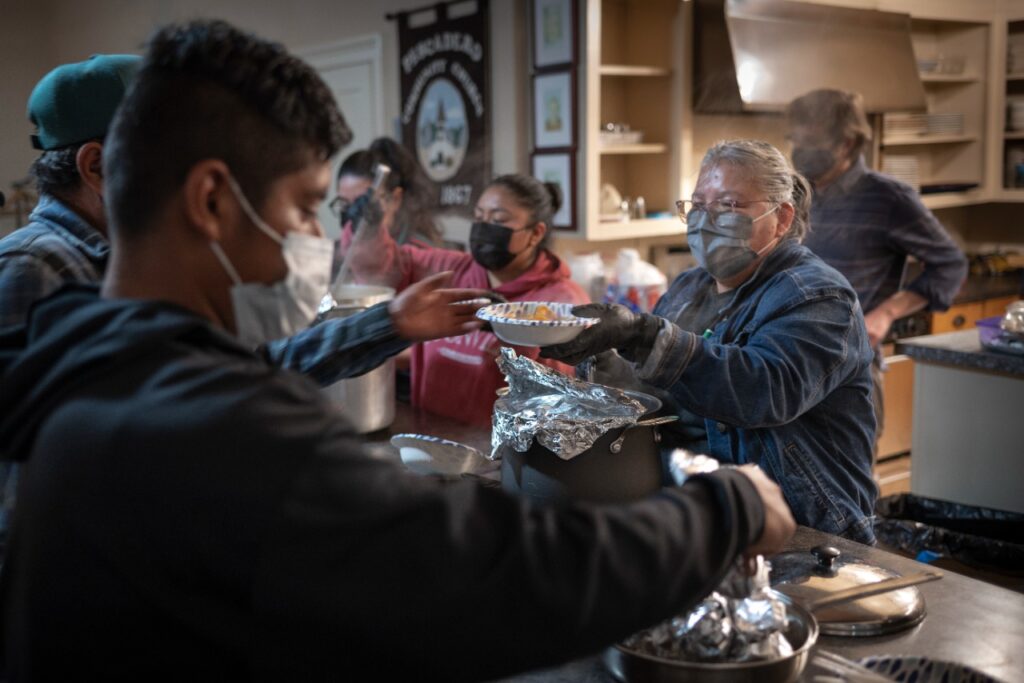
Farm workers in Pescadero, California. Photo by Manuel Ortiz
By Manuel Ortiz, Pensula 360 Press [P360P]
Pescadero, California. Once a week at 6:00 p.m., when the cold sets in outside and the darkness of night covers almost everything, a cheerful and cheerful gathering of country folks called
